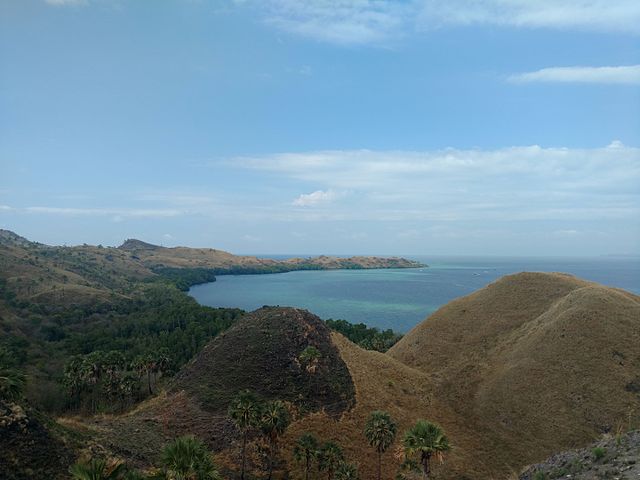
Thammasat University students interested in ASEAN studies, Indonesia, history, political science, sociology, artificial intelligence, and related subjects may find it useful to participate in a free 21 July Zoom webinar on How Artificial Intelligence will influence Indonesia’s 2024 Elections.
The event, on Friday, 21 July 2023 at 9am Bangkok time, is presented by ISEAS – Yusof Ishak Institute, Singapore.
The TU Library collection includes several books about different aspects of election technology.
Students are invited to register at this link:
https://us06web.zoom.us/webinar/register/WN_Bj9WyhPvT4WQWk9x9H4M7w#/registration
The event webpage explains:
About the Webinar
Advances in digital technology and Artificial Intelligence (AI) have provided new tools for engineering information. We have seen increased use of generative AI in political campaigns in Indonesia. Generative AI can create messages that take advantage of social and political discontent, aiming at those disappointed with the economy, inequality, ethnic-religious issues, LGBT issues, etc. Politicians can use generative AI to share their political messages or respond to campaign developments. The technology provides easy and inexpensive tools to enhance political campaigns.
Unfortunately, the public has limited ability to distinguish fake from factual information. What is most worrisome is the lack of guardrails that protect voters against fake news, disinformation, or false narratives. Given that AI can potentially transform the upcoming 2024 elections in Indonesia, this webinar wants to discuss how AI has been used in political campaigns in previous elections and how it affects the narrative, thus voters and the media opinion. It will also discuss what the government should do to mitigate AI’s unintended consequences, in spreading false information and increasing political polarisation.
About the Speakers
Khoirunnisa Nur Agustyati is the Executive Director of Perludem. Previously, she worked as a researcher at the Center for Electoral Reform (CETRO). Her research focuses on electoral issues such as the electoral system, electoral management, and women in politics. She is also actively involved in various forums on electoral and democratic institutions as well as in civil society coalitions where she advocates for election laws and the professional handling of the elections.
Ismail Fahmi is a Lecturer in Information Technology at the Islamic University of Indonesia. He is the Founding Director, Drone Emprit, a social media analysis system based on big data.

Last month the website of the United Nations Educational, Scientific and Cultural Organization (UNESCO) posted a news article, “Together for Peaceful 2024 Elections in Indonesia!”:
On 22 June 2023, UNESCO Jakarta held a high-level meeting on “Combatting Hate Speech and Disinformation ahead of the 2024 Indonesian Elections”. The event was organized as part of the Social Media 4 Peace project, funded by the European Union, and also served to commemorate the International Day for Countering Hate Speech.
UNESCO brought together representatives of major platforms in Indonesia, the President’s Executive Office, the Election Supervisory Body, the National Commission on Violence Against Women, the National Human Rights Commission and 12 civil society organizations to reflect on the lessons learned from the 2019 Presidential Elections, discuss the upcoming challenges of effectively monitoring the election-related disinformation and incendiary content, and to identify concrete avenues for multi-stakeholder collaboration.
Conducting elections in the digital age is an extraordinary challenge. We need the government, technology companies and civil society on board, to ensure that electoral campaigning and messaging proceed in a way that curtails the spread of disinformation and allows journalists to carry out their work safely.
- Dr. Itje Chodidjah, Executive Chair of the Indonesian National Commission for UNESCO.
In his opening remarks, the Deputy Head of Mission of the European Union to Indonesia and Brunei Darussalam, Mr Stéphane Mechati, highlighted the common challenges related to online harmful content faced by Indonesia and the European Union ahead of their respective elections.
The spread of online harmful content, particularly hate speech and disinformation, has become an insidious threat to democracies and social cohesion. All of us have the ultimate responsibility to remain united against disinformation and find the best ways to ensure that citizens can freely express their views and receive information from transparent and pluralistic sources.
- Mr Stéphane Mechati, Deputy Head of Mission of the European Union to Indonesia and Brunei Darussalam.
The event introduced the Damai Coalition, set up with UNESCO’s support within Social Media 4 Peace, as a strategic partner, which aims to serve as the voice of civil society and an advisory forum to platforms and the government.
The Damai Coalition’s goals are to engage in a transparent and sustained dialogue with platforms and the government, to ensure that content moderation practices and policies in Indonesia are informed by the understanding of the local context and in line with international human rights standards, to conduct evidence-based research and advocate for freedom of expression online as well as to increase digital literacy and awareness among the wider public on these issues.
- Dr. Wijayanto, Chairperson of the Damai Coalition.
Made up of 12 independent civil society organizations, the Damai Coalition can mobilize its unique networks and expertise to advise on concrete methodologies for monitoring harmful content online, designing risk assessments for conflict-prone areas and proposing protocols for handling emergency situations among platforms and election management bodies.
- Ms Valerie Julliand, United Nations Resident Coordinator for the Republic of Indonesia.

The meeting was divided into two parts. The first was a public session which introduced the Damai Coalition and offered key findings from research commissioned by UNESCO to the Center for Digital Society and Article 19 on Indonesia’s legal frameworks addressing online harmful content and the dynamics of social media use and content moderation. The second session was a closed discussion conducted under Chatham House rules to ensure an open environment for all stakeholders to freely share their concerns and suggestions. The representatives of technology companies, including Google, Meta, Twitter, Tik Tok, YouTube and WhatsApp, discussed possible collaboration with Damai Coalition on improving monitoring, early warning and escalation mechanisms for tackling disinformation and hate speech.
To demonstrate a joint commitment, the participants signed the banner entitled “Together for Peaceful 2024 Elections!”. Moving forward, UNESCO will facilitate the follow up process among the stakeholders and give way to concrete initiatives to support freedom of expression and access to information as a public good.

(All images courtesy of Wikimedia Commons)
